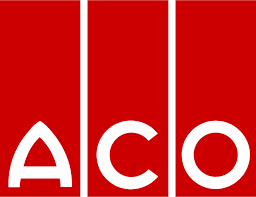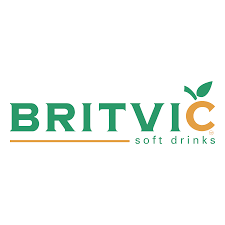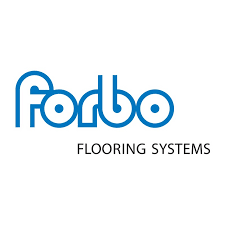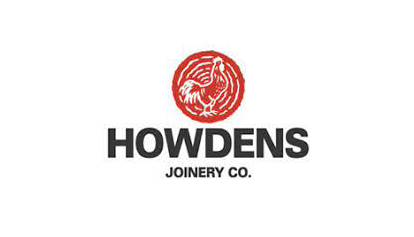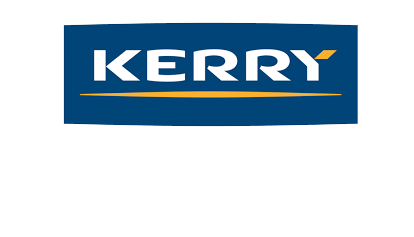Ratchet Up Performance

Ratchet up Performance category of training courses are for those engaged with the challenge of progressing beyond zero breakdowns to release the full potential of their people, plant and processes. That includes the development of engineering capabilities to progress from preventing downtime to preventing defects.
Practical Lean Leadership For Team Leaders and Managers
- Details
- Parent Category: Courses
- Category: Ratchet Up Performance
- Dates: As Required
- Location: In Company Course
- Cost: £4500 up to 10 Delegates
The workshop provides operational leaders and change agents across the organisation with the lean leadership skills to accelerate progress on their lean journey as part of the day to day routine.
By the end of the workshop, delegates will understand how to surface Lean wastes as well as issues and barriers to progress, apply visualisation tools that home in on key success factors, establish realistic and achievable targets and guide teams on their journey towards them.
-
Overview
Sessions are very interactive with delegates working on practical activities to gain insight, create practical leadership agendas and communicate with meaning to guide teams to success.
The workshop approach is designed to support different learning styles to maximise the learning opportunity and support transfer of ideas on return to the workshop. That includes visual, practical, case studies and hands on team based exercises
- The first part of the workshop covers skills to map out and visualise their manufacturing process, identify the current state, its issues and the classic 7+1 Lean wastes and then formulate a future state and action plan to make the step change to the future and address the identified issues.
- The second part of the workshop works on how to improve flow in the value stream. This includes the most popular tools used in manufacturing improvement - Visual management, 5S and job instruction.
- The final sessions of the workshop involve work by Delegates on the development of action plans to apply Lean Leadership lessons learned to resolve specific problem areas and improve value stream performance.
These plans can be supported by on site coaching to accelerate the pace of improvement and identify further opportunities.
Delegates are encouraged to bring along details of specific problem areas and challenges that can be used to develop personal action plans and workplace learning projects.
The Workshop ApproachThe first part of the workshop covers tools to map out and visualise the manufacturing process, identify the current state, its issues and the classic 7+1 Lean wastes and then formulate a future state and action plan to make the step change to the future and address the identified issues.
The second part of the workshop works on how to improve flow in the value stream. This includes the most popular tools used in manufacturing improvement - Visual management, 5S and job instruction.
The final sessions of the workshop involve work by Delegates on the development of action plans to apply Lean Leadership lessons learned to resolve specific problem areas and improve value stream performance. These plans can be supported by on site coaching to accelerate the pace of improvement and identify further opportunities.
Day 1Learn about Lean:
- how the 5 Lean principles apply to your operation
- Lean as a strategy
- Lean as a business process
Shop floor mapping
- “how to see” waste using Value Stream Mapping
- Practical application of VSM at the course venue
- Current state and future state maps
- Surfacing issues and opportunities
Visualisation
- how to communicate “in an instant”
- what to share,
- what to show ,
- how to highlight problems
- How to facilitate positive reactions to performance challenges
Create a visual board for the hotel process
Draft visual board for the venue process
Real live example for the venue team!Day 2Problem Solving
- Understand why problem solving is important in Lean How problem solving fits into Lean and flow improvement
- 4 Attributes of successful Lean companies
- Problem solving benchmarks– Spears 4 attributes
Practical problem solving
- 8 Step approach to practical problem solving
- Problem solving case study
- Applying the practical problem solving tools to a case study
- Learn and do approach to applying the 8 steps using practical application.
Day 3Workplace learning
- Solving my problem – sharing and coaching
- Application of Lean Tools to your problem
- Learning how to coach
Using Lean tools
- 5S, Tool and application to hotel process
- Workplace organisation, what its good for, when not to use it
Training Within Industry (TWI) method for
- Job design
- Easy to do right, difficult to do wrong, simple to learn
- Job instruction
- Ensuring the learner has learnt
- Practical exercise on venue case study
Action Planning
- Personal learning and action plan
- 100 day plan
Workplace learning project
Review of the workshop
Workshop LeaderWorkshop is led by Neil Trivedi
The workshop will be led by Neil Trivedi
Neil is a respected Lean specialist and change agent within the Automotive, Aerospace, Food, FMCG, Transportation, Biomedical, and Public Sectors. He has spoken at many lean conferences including the respected LEI conference.
Neil’s early career in operational management progressed through team leader and project roles to site management. This led on to an international lean improvement role with Mars and GKN.
The practical nature of the resulting Lean Leadership approach bears witness to his grounding in operational reality as well as his understanding of how to align shop floor action with strategic business drivers.
Lean Director 2 day Executive Team Workshop
- Details
- Parent Category: Courses
- Category: Ratchet Up Performance
- Dates: 2 day course
- Location: In Company Course
- Cost: £3000 up to 10 Delegates
Learn how to develop your lean instinct. It may not be what they teach at business school, but in the white heat of the day to day operations, influencing behaviours requires a response to events at an emotional level. Operational leaders need to develop an internal compass to be able to challenge poor practices and guide discussions about where to spend time and money on the journey to excellence.
Workshop learning goals cover
- Learn what elite highly effective operational leaders do differently to create a proactive improvement culture.
- Understand the wiring up behind behaviours and how exemplar organisations use this to achieve more with less.
Know how to benchmark your organisation against industry leading performers and how to use this insight to release the full value adding potential of your organisation. - Develop a bespoke Lean Leadership road map to accelerate the pace of engagement, transformational change and performance improvement.
-
Overview
This workshop is designed to improve your ability to join the dots between theory and practice by learning from the experiences of exemplar organisations and the habits of effective lean leaders. Participants will learn how to confront the current reality with confidence so that they can guide colleagues and direct reports to excellence.
Why attend the workshop?- Fill in the gaps in your understanding cut through the jargon, and understand how exemplar organisations to achieve industry leading levels of performance.
- Learn how to to create a proactive improvement culture.
Understand the wiring up behind behaviours and how to accelerate the pace of improvement. - Know how to benchmark your organisations against industry leading performers and use this insight to home in on areas to create a cycle of success, opportunity and advantage.
Day 1Introduction to improvement theory and the building blocks of success for Lean Manufacturing, Six Sigma and TPM. This includes a short benchmarking exercise to position your organisation against the behaviours of industry leading performers.
Team based exercises using a manufacturing simulation to illustrate the front line reality and how continuous improvement works in practice.
Lessons are drawn from the practical exercises provide an insight into:
- Getting the job done better
- Confronting the current reality
- Raising standards of daily management
- Effective use of 5S/CANSO
- Short interval control
- Setting Operations team improvement accountabilities
- Improving flow and flexibility
- Workflow management/visual management
- Value stream mapping
- Standardisation
Day 2Raising cost effectiveness
- Identifying improvement potential;
- Cause/Effect analysis, getting to root cause
- Cross functional project governance
- A3 Coaching
- Setting Technical function improvement accountabilities
Preparing for the future
- Setting the improvement leadership agenda
- Developing improvement leaders
- Developing the change master plan
- Setting management and support function improvement
- accountabilities
Action Planning
- Achieving top team consensus
- Developing a practical easy to translate leadership vision
- Developing a realistic and achievable 12 month programme
Workshop LeadersThe workshop is led by Dennis McCarthy and Ian Weare.
Dennis McCarthy
Author of 2 books on continuous improvement, his career includes positions in both general management and consultancy. Described by one senior international manager as a true "Sensei of change", he has guided continuous improvement programmes ranging in size from small single site applications to company-wide multi-site transformation programmes. This has included support for well-respected and award winning companies such as 3M, Ford, General Motors, GE, IKEA, Heineken and Johnson Matthey across Europe, India, USA, China and Japan.
Ian Weare
Ian's early career for a leading automotive component supplier included roles as engineer, team leader, manager and change agent. This has provided the practical foundations for his success as a coach and advisor to global industry leaders including BP, Coca Cola and Honda. He has developed a unique set of learning and skill development tools to explain difficult concepts whilst having fun. His challenging but supportive approach combines relevant theory with practical activities to develop insight and confidence to act.
Beyond 5S - Creating a Lean Culture Revoultion
- Details
- Parent Category: Courses
- Category: Ratchet Up Performance
- Dates: As Required
- Location: In Company Course
- Cost: £4500 + VAT
5S is widely used to define individual workplace layouts but its true power is in the development of synchronised islands of activity covering both material and information flows.
This 3 day workshop takes participants on a journey from disorganised to organised to workplace systems that support synchronicity and flow across the end to end value stream.
Workshop goals are
- Learn how to lock in the gains of 5S
- Understand how to engage those in the workplace with improving workflow synchronicity
- Know how to build self managed workplace processes
- Be able to move beyond the theory of 5S to improve all aspects of daily working.
-
Overview
Learn how to lock in the gains of 5S by developing work spaces that synchronise all aspects of daily work including:
- Receiving work instructions
- Time management/work tracking
- Materials, tools and spares management
- Research/information finding
- Dynamic workload balancing
- Administration/QA
- Control of compliance protocols
Understand how to engage those in the workplace with systematically improving Work Space Synchronicity to:
- Increase work plan adherence
- Adapt to variability in materials, people and order flow
- Efficiently incorporate agency/temporary personnel at times of peak loading
- Simplify control and compliance
- Reduce human error risks
- Release of management and support personnel from day to day activities to focus on higher added value tasks.
This 3 day workshop covers the theory and practice of work space design and the practical steps to deliver self-managed work processes. Processes that are easy to do right, difficult to do wrong and easy to learn. The outcomes includes:-
- Simplified, more resilient shop floor production, maintenance, planning, quality assurance and training processes.
- Transfer of management and support function standard work to front line teams
- Improve door to door quality cost and delivery performance
- A customised roadmap to guide the journey from passive to synchronised workspaces.
Who should attend?For managers, team leaders and change agents tasked with the reduction of shop floor waste and non-value added activities through the engagement of shop floor personnel with the improvement of:
- Work place systems and procedures including planning, booking in, kitting, material control;
- Workplace layout, organisation, flow and productivity;
- Rapid customer order fulfilment cycles;
- QA checks, in process testing/auditing;
- Training of personnel including temporary worker's/agency staff.
Workshop ApproachThis will include the developing solutions around:
- The design and location of safety guards, enclosures, workstations, conveyors and transfer systems to simplify production processes, reduce waste and improve flow;
- The creation of work place which transfers ownership of the territory to those who work in it;
- The use of Daily Management as a lever for change and engagement as a vehicle to develop high performance teams.
This combination of theory and practice guides through the journey from passive to synchronous workplace design.
Day 1Understanding shop floor reality
- What does good look like?
- What are the wastes
- Why do they occur
- The management dilemma
- Control vs Engagement
- Understanding behaviours and engagement
- The principles of engagement
- The steps to high performing teamwork
- Understanding production processes
- Direct and indirect activities/standard work profile
Day 2/3Step 1: Take Control
- Assessing current design
- Understanding the shop floor reality
- Wastes, trouble map, priorities
- Standardisation
- Resilience and flexibility
- Clarifying normal conditions
- Coordination, feedback, skill levels
- Assessing visual management Information, Instructions, Knowledge
- Setting improvement measures and priorities
Step 2: Get organised
- Developing and refining layout options
- Task design and integration
- Material and information flows
- Training programme design and delivery.
- Improving daily management and Management/Team Standard work
- Developing and tracking the business case
Step 3: Get Better
- Engaging shop floor personnel
- Setting accountabilities, getting team engagement
- Reinforcing Change: tracking progress, giving recognition
- Raising Quality, Cost and Delivery performance
- Capture and resolve the causes of defects and human error
- Optimising working practices
- Develop a practical 90 day action plan
- Defining a realistic and achievable 12-month outcome
- Developing first step
- Delivering results
Review of the Workshop
Benefits, Concerns, Q&AWorkshop LeaderLed by Ian Weare of DAK Consulting
Ian's early career for a leading automotive component supplier included roles as engineer, team leader, manager and change agent. This has provided the practical foundations for his success as a coach and advisor to global industry leaders including BP, Coca Cola and Honda. He has developed a unique set of learning and skill development tools to explain difficult concepts whilst having fun. His challenging but supportive approach combines relevant theory with practical activities to develop insight and confidence to act.
Lean Office Green Belt Training
- Details
- Parent Category: Courses
- Category: Ratchet Up Performance
- Dates: 3 day training workshop
- Location: In Company Course
- Cost: £4500 up to 10 Delegates
The gains from systematic improvement of these processes can be easily quantified in terms of improved transaction speed, productivity and customer service. Lead time reductions of 70% are not uncommon when business processes are reviewed for the first time.
Workshop Goals are:
- Learn how to apply Lean principles to business processes to improve the value added to internal and external customers.
- Understand how to identify, prioritise and mobilise improvements that target business wide priorities derived from Business strategy.
- Know how to engage office team experience in improving process resilience and deliver better value for the customer.
- Be able to develop realistic and achievable improvement plans to systematically deal with the contributors to the recurring problem, evolve a Lean culture and develop innovation systems, improve collaboration with internal and external customers/suppliers to improve workflow, improve the visibility of workflow tracking..
-
Overview
All business functions within a company are linked by their administrative processes so the health of those process has an impact on everyone's work rate.
The impact of weaknesses is felt by every function in terms of bureaucratic delays, lost productivity, excess cost and lost capacity.. Problems most frequently occur at the interfaces of administration workflow. This lack of synchronicity is a common cause of waiting time, work backlogs defects and customer service issues. In other cases, the escalation of decisions that could be taken locally add to management workloads resulting in decision bottlenecks. Finally, as companies grow and adapt to the market their admin processes also need to adapt to provide a sound foundation for meeting future business challenges including:
- Methods and organizational control (R&D, Engineering, Personnel, Training);
- Product and Materials control (Procurement, QA, Customer Service, Logistics);
- Operations and Equipment Management (Production, Maintenance).
Who Should Attend?The workshop content is relevant to Managers, Team Leaders, and Change Agents faced with the challenge of improving information and administration processes for:
- Business to business order processing/quotation management.
- Manufacturing planning and supply chain.
- Financial/accounting back office.
- Customer services.
- HR, Sales, Engineering, Quality, and Purchasing.
- Project administration.
Workshop LeaderWorkshop is led by Neil Trivedi
Neil is a respected Lean specialist and change agent within the Automotive, Aerospace, Food, FMCG, Transportation, Biomedical and Public Sectors. He has spoken at many lean conferences including the respected LEI conference.
Neil’s early career in operational management progressed through team leader and project roles to site management. This led on to an international lean improvement role with Mars and GKN. The practical nature of the resulting Lean Office approach bears witness to his grounding in operational reality as well as his understanding of how to align shop floor action with strategic business drivers.
Lean Green "Saving More By Using Less"
- Details
- Parent Category: Courses
- Category: Ratchet Up Performance
- Dates: As Required
- Location: In Company Course
- Cost: £4500 up to 10 Delegates
Learn from a 3-year project applying a systematic Lean approach to material, energy and process wastes that delivered a payback on environmental projects of around 5-times that of traditional technology-led approach. Understand how to define a "Green" agenda with the potential to refresh and accelerate the gains from exisitng TPM, Lean and Six Sigma programmes.
Learning goals are to provide:-
- How a targeted manufacturing cell level approach can reduce resource use by 30% to 50% and has the potential to reduce the cell mass and energy flows by 5-10%
- How to plan and deliver a Lean and Green kaizen
- How to engage the workforce with continuous Lean and Green thinking
- The route map to deployment of Lean and Green to progress towards the zero-waste factory.
-
Who should attend
This workshop is designed to meet the needs of key manufacturing, environmental and maintenance personnel, tasked with the delivery of best in class levels of performance. This includes: -
- Production Managers
- Maintenance Managers
- Team Leaders
- CI Leaders
- Environmental Mangers
ContentIntroduction
- Lean and Green objectives
- How Lean and Green can help reduce your environmental impact
- How visualisation can help reduce costs
- Benefits of going green
A 5-Step Approach to a Lean and Green Kaizen
- Define the area to go green
- Measure the environmental flows
- Analyse the recorded data
- Create improvement ideas
- Implement and sustain the new thinking
Define the Area to go Green
- Understand the business perspective and areas of benefit
- Understand how to create a scope document
- Define the actors and playmakers needed to get success
- Understand how to train and communicate to team members
Measure the Environmental Flows
- Understand how to define and allocate responsibilities for environmental flows
- Understand why it is important to collect data
- Understand the importance of go-see
- Create awareness of the challenges collecting the real data
Analyse the Data
- Understand how to evaluate data
- Understand how to use the data to made decisions
- Create awareness of the challenges of tackling environmental
Improve
- Create ideas fir environmental improvement
- Evaluate and prioritise these ideas
- Why it always takes longer to deply than you think
- Why plans fail
- How to plan for success
Sustain
- Why we need to sustain
- Leadership responsibilities and creating a green CI culture
Implementation
- Setting objectives
- Developing a plan
- Establishing a team
- Role of facilitator
- Managing team sessions
- Maintaining an audit trail
- Refining the first attempt
Conclusion
- Summary
- Round up
This course is workshop based with practical examples being used to emphasise key points.
Workshop LeaderWorkshop is led by Neil Trivedi
Neil is a respected Lean Specialist and Change Agent withing the Automotive, Aerospace, Food, FMCG, Transportation, Biomedical and Public Sectors. He has spoken at many lean conferences including the respected LEI conference.
Neils early career in operational management progressed through team leader and project roles to site management. This led to an international lean improvement role with Mars and GKN. His work with GKN in Brazil provided the opportunity to extend the boundaries of lean to encompass the environmental agenda featured in his recent book on Lean and Green Manufacturing.
The practical nature of the resulting Lean Green approach bears witness to his grounding in operational reality as well as his understanding of how to align shop action with strategic business drivers. An approach which gains considerably from the experience of implementation in the highly volatile Brazilian business climate.






